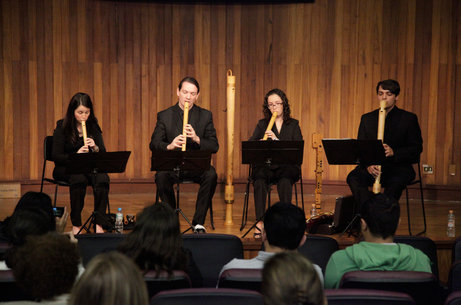
José Izquierdo has won a prestigious international prize for his work in bringing back to life an early 19th century piece of Peruvian-Bolivian music which shows how composers united European and local influences.
A Gates Cambridge Scholar has won a prestigious international prize for musicological studies for his work in bringing back to life an early 19th century piece of Peruvian-Bolivian music which shows how composers united European and local influences.
José Izquierdo [2013] has scooped the first ever Prêmio Ruspoli in Euro-Latin American musicological studies. The prize, which comes with a sum of around £750, is usually awarded to European musicologists.
José won for his paper, “Ilustration and counterillustration of an Arequipeñan quartet (or how to write a yaravi in the style of Haydn)”.
The prize was awarded in Sao Paolo in early September and Jose will attend another ceremony in Rome next week.
José’s paper was about the second movement of a string quartet by Pedro Ximénez de Abrill, a Peruvian-Bolivian composer from the early 19th-century. The piece has never been edited or performed and Jose reconstructed it from the manuscript parts.
He says: “It’s really interesting. Ximénez confronts in it two different musical ideas, one is the “quartet” version of a traditional yaravi, a regional form of song of the region between Arequipa and Sucre, and the other is a very classical melody, in the style of Haydn or Mozart.”
The article discusses problems of identity, of what it was like to be a composer during the Latin American wars of independence and why Ximenez would write the piece in the way he does.
He asks: “Can we really say that the yaravi melody is the only Latin American one? Why would it be less “local” to write in the style of Haydn? Where does the Atlantic frontier and culture end?” He adds: “I believe that Ximénez, like most composers and artists in Latin America at the time, thought about himself in a cosmopolitan, transatlantic way. I believe that this way of reading music creation during this period can explain important issues that have confronted Latin American musicology for decades.”
His paper will be printed, in a revised version, in the Miscellanea Ruspoli.












